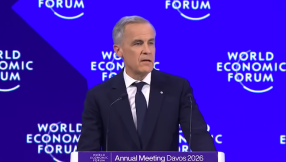
Is worrying normal? The temptation to worry is not difficult to indulge in. There are bills to pay, health to watch, food to buy, children to raise, relationships to guard, loved ones to keep safe.
Everyone has cause to worry. It's been there since the beginning. Why did Adam and Eve eat the fruit? Maybe they worried that something was being withheld from them and they needed to get it themselves.
But what is worry?
Worry is unease. It's concern or fear about present or potential difficulties. It springs from a lack of trust that you won't be cared for if you don't do it. For believers, it's not trusting that God loves you and will take care of you.
I've been a Christian since I was five years old. I've been reading the Bible since I learned how to read. I even memorized Matthew 6:24 - 35, yet I still struggle with worrying.
Why do I worry?
- I worry because I don't trust God
- I don't trust God because I don't believe who He says He is
- I don't believe Him because I've been disappointed in situations where I directly chose to trust Him
- I find it difficult to overcome my mistrust, especially when a new trial looks very much like a previous disappointment
But He's given me ample cause to trust Him.
- He's protected and guided me
- I continue to be clothed, sheltered, fed
- He's taken care of my family
- He talks to me (and not just through His word)
- He's answered prayers
- He's acted before I've even verbalized a need
So why do I still worry?
Because God takes too long to act.
Amid the Covid-19 pandemic, I quit my job and went on sabbatical because God asked me to. Quitting was bittersweet.
The sweet? I was perpetually exhausted, depressed, constantly ailing, and floundering in my faith.
The bitter? I was terrified and I needed an income. I had debts to settle, a car to pay for until it was sold, and a family to take care of. Not to mention the expenses for my sabbatical which included cross-continental travel.
My sabbatical plan was simple: I was going to visit my siblings for extended periods and rest while taking care of my nieces and nephews. First, I would visit my sister's family in California for three months. Then I'd head to another sister's family in Maryland to help them move to Virginia. Next was London for four months with another sister. Finally, I'd return to Virginia for five months. When I returned home to Jamaica, I would be fully rested and would have replaced my previous salary through my new creative career.
After I prepared my travel budget, I decided that I could trust God as long as He did what he was supposed to do in the timing I allotted Him.
But I'm not God
God isn't my personal steward, to do or to act according to my will. If I was going to learn how to trust Him, I would have to do it His way, not mine.
I expected that breaking the worrying habit wouldn't be easy or straight-forward, and it wasn't.
My UK visa application was rejected because all they saw was a young, single, and financially unfit Jamaican who would run away to their country and abuse public funds.
My living expenses increased when I swapped out the UK leg to visit my sister in Brazil. I had planned to stay for three months but the ongoing pandemic meant I had to stay for five months.
Then my debts increased exponentially. Before the pandemic (in January 2020) I had been in and out of the emergency room at a hospital in California. I hadn't received one of the bills from the visit (a bill to the tune of eight thousand US dollars). The hospital contacted me midway through my stay in Brazil while I was unemployed, uninsured, and unable to pay.
My car took ages to sell, and by the time it was sold, most of my expected surplus from the sale had disappeared.
Learning to trust God
Throughout each setback and delay, I diligently reminded God of His promises - at first with shaking fists and fearful murmurings, but eventually with open hands and patient petitions.
He provided miraculously and settled all my debts. I asked the hospital to cancel the debt, and they graciously did. A family member asked for the sum of my other debts and settled those. I returned home unemployed, but rested and healed from the chronic illnesses that plagued me.
My plans had been upended but God still did all that mattered. I wanted to learn how to trust Him, and he began to teach me. I wanted my faith to grow, and it did.
Worrying is a choice
Choosing not to worry is a temptation that we must consistently wrestle and overcome. Why? Because God requires that we trust Him.
Trusting is a key tenet of the faith that we profess, so we must understand it if we expect to be called Christ's disciples.













